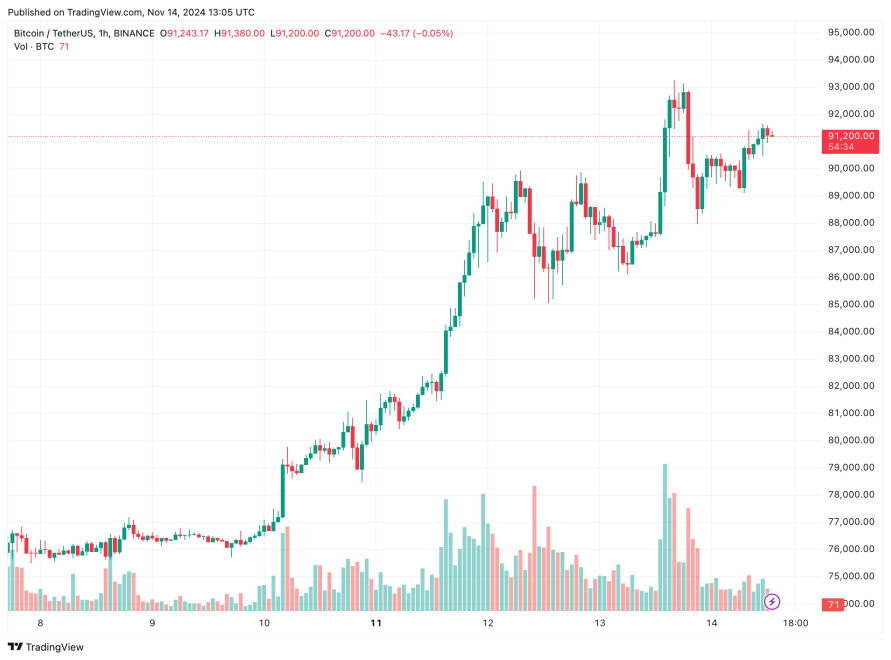Crypto Assets Catch Institutional Attention As 72% Show Willingness To Invest – Survey Reveals
A recent survey by Swiss digital bank Sygnum found that 72% of institutional investors – including family offices, external asset managers, fund managers, and hedge funds – are open to investing in crypto assets.
Institutional Investors Getting Comfortable With Crypto Assets
Conducted at the end of Q3 2024, the Sygnum Future Finance Survey gathered responses from over 400 institutional and professional investors across 27 countries. Notably, 33% of the respondents were Sygnum clients and investors.
The survey highlighted an increase in risk appetite among traditional institutional investors toward digital assets. Over 53% of client portfolios have allocated more than 10% to digital assets.
63% of respondents expressed a “high-risk appetite” for digital assets. Compared to 2023, the proportion of respondents with high or very-high risk tolerance for crypto assets has grown in 2024.
Additionally, 91% of respondents reported investments in leading blockchain projects like Bitcoin (BTC) and Ethereum (ETH), indicating a preference for relatively less volatile digital assets.
Among the reasons for investing in crypto assets, 62% of respondents cited exposure to the future potential of the digital asset megatrend. This was followed by 52% who aimed for portfolio diversification, 45% who viewed it as a macro hedge against geopolitical uncertainties and currency debasement, and 38% who sought yield generation.
Interestingly, while 44% of respondents in 2023 viewed crypto as an alternative asset class, only 31% do so in 2024. This shift hints at the perceived maturity of digital assets, driven largely by the success of crypto exchange-traded funds (ETFs).
Majority Investors Want To Increase Digital Assets Exposure
According to the survey, 79% of respondents plan to increase their investments in crypto assets within the next 12 months. A significant number of respondents with no current exposure to crypto assets intend to enter the market within this period, potentially leading to fresh capital inflows by mid-2025.
Interestingly, regulatory uncertainty surrounding cryptocurrencies is no longer the primary reason for not investing in this emerging asset class. This year, 53% of respondents cited asset volatility as a barrier to entry, while 50% pointed to a lack of trust as the main obstacle to crypto investment.
Among specific crypto sectors, 76% of respondents expressed interest in Layer 1 blockchains like Bitcoin and Ethereum. Meanwhile, 55% of clients noted web3 infrastructure – largely buoyed by growth in AI and decentralized physical infrastructure networks (DePIN) – as an area of interest, followed by the Layer 2 ecosystem, which attracted 41% of investors.
Finally, 71% of respondents indicated that the approval of both BTC and ETH ETFs by the US Securities and Exchange Commission (SEC) significantly boosted their confidence in crypto investments.
Data from SoSoValue shows that total net assets held across US spot Bitcoin ETFs currently stands at $95.40 billion, while Ethereum ETFs hold $9.48 billion. Recently, BlackRock’s Bitcoin ETF eclipsed the firm’s gold ETF in assets under management.
At press time, Bitcoin trades at $91,200, up 4% over the past 24 hours. The total crypto market cap currently sits at $3.14 trillion, up 1.7% in the last 24 hours.







